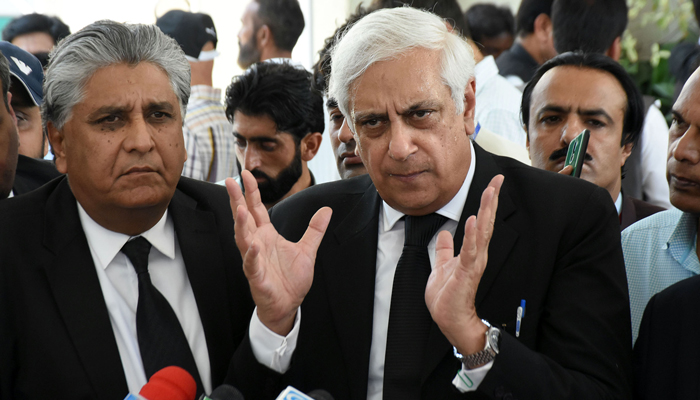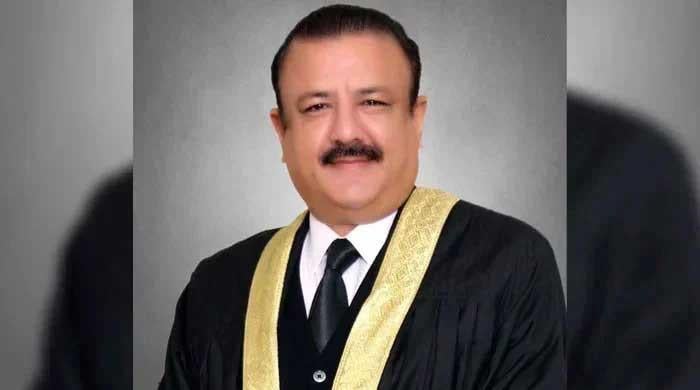PM’s aide proposes setting up 'constitutional court'
Irfan Qadir suggests "non-controversial" lawmakers and people from different walks of life should be appointed to it
May 29, 2023

- SAPM Irfan Qadir says parliament is "mother of all institutions".
- "SC has no need to build a dam or railways or to operate PIA."
- Says parliament or government are not against SC in any way.
Special Assistant to the Prime Minister (SAPM) Irfan Qadir has asserted that parliament is the "mother of all institutions" and suggested that a "constitutional court" be set up.
Addressing a press conference in Islamabad Monday, he said, "Non-controversial" members of parliament, mediapersons, lawyers, judges and people from different walks of life should be appointed to the constitutional court.
"Institutions are bound to follow the Constitution. No one person can control the country. We have to make the Constitution supreme," Qadir emphasised.
He pointed out that institutions stayed within their domain of authority in every democratic country. "The Supreme Court has no need to build a dam or railways or to operate the Pakistan International Airlines."
The SAPM referred to Supreme Court verdicts that removed two premiers — Nawaz Sharif and Yousuf Raza Gilani — from office. "There was a time political engineering was done in Pakistan. There is no mention of lifetime disqualification in the Constitution [yet] Nawaz Sharif was disqualified for life."
He continued that the top court had charged Gilani with contempt of court, which was "a clear violation of the law".
Referring to the matter of polls in Punjab and Khyber Pakhtunkhwa — because of which the government and the judiciary are at loggerheads — Qadir said the president and the governor were not authorised to decide the date for elections to the provincial assemblies.
"We will not give anyone the right to rewrite the Constitution. Every institution's limit is defined in the Constitution. Any verdict that is against the law is not implemented," he stated.
The SAPM clarified, however, that he was standing with the Supreme Court. "Parliament or the government is not against the Supreme Court in any way."
The government wanted to strengthen the judiciary, he said, adding that if there was division in the top court, the judges should resolve it themselves.
The SAPM's presser came as the Supreme Court adjourned indefinitely a case related to holding polls in Punjab after the Supreme Court Review of Judgements and Orders Bill, 2023 came into effect.
The government and the judiciary have been at loggerheads in recent months as the top court ordered polls to be held in Punjab on May 14, while the government did not issue the funds for them.
Meanwhile, the government got two bills passed through parliament, aimed at reducing the chief justice's powers to take suo motu notice and form benches, and giving the right to appeal suo motu verdicts.









